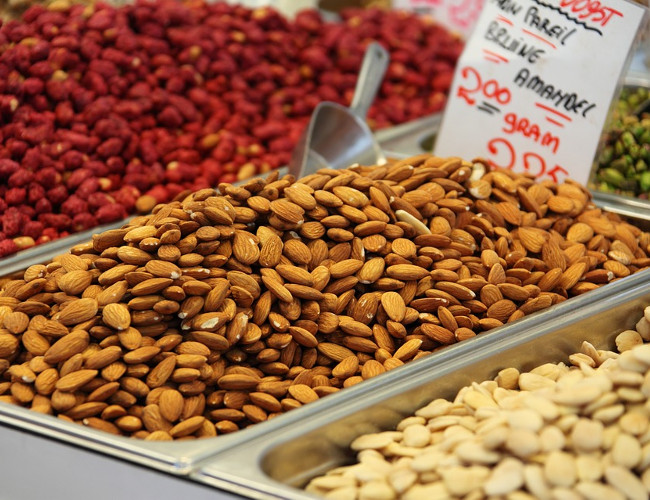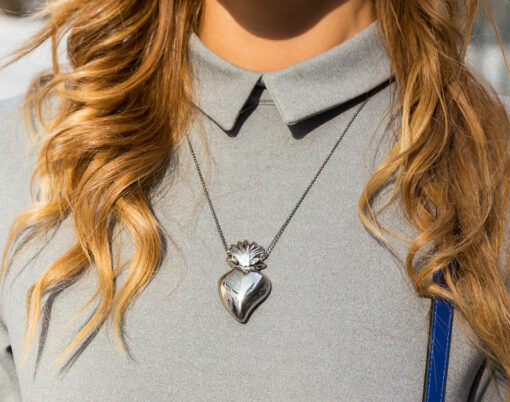According to The Migraine Trust, one in seven of us suffer from migraines, and those that suffer know only too well when it is more than just a dull headache! Often migraines strike without warning and can cause the likes of visual disturbances, dizziness and even vomiting.
With this in mind, we’ve asked our experts for top tips on easing the condition naturally, as opposed to popping painkillers. Here is what our experts could recommend:
1. Ice packs and peppermint oils are your friend

“Ice packs for the forehead and temples are one of the easiest and most popular ways to alleviate migraine pain. For even better results, you can massage one drop of soothing peppermint oil to each of your temples. Peppermint can help to dilate blood vessels within the brain, making it an invaluable essential oil for treating headaches,” explains Lily Soutter, nutritionist and weight loss expert at lilysoutternutrition.com.
2. Up your CoQ10
“CoQ10 is a vitamin-like substance, present in every cell in our body and has been associated with helping to reduce headaches and migraines. Although the body makes its own CoQ10, some research suggests that these levels decrease from the age of 20 onwards. Try Quest’s Ubiquinol Qu10 (£20.81, qnutrapharma.com),” says nutritionist, Cassandra Barns.
3. Make the most of ‘natures tranquiliser’

“Recent research (by the NCBI) has shown that those with lower levels of magnesium can experience a greater frequency of migraines. An increased magnesium intake can reduce attacks by up to 41.6%. Magnesium rich foods consist of: dark green leafy vegetables, nuts, seeds, fish, beans, wholegrains, avocado and yoghurt,” says Lily.
“Many of us live hectic, stressful lives and are more exposed to environmental and food toxins, which can make us more prone to a magnesium deficiency. To make sure you’re getting your daily dose I would recommend taking Natures Plus KalmAssure Magnesium Capsules (£11.75, naturesplus.co.uk), which are easily absorbed and delivered to the tissues,” explains Cassandra.
4. Omega 3 oils
“One study (by the National Headache Foundation) has shown a 40-50% reduction in migraine attacks when taking omega 3 fish oil supplements daily. These healthy oils can also decrease the duration and severity of migraines. They act as a potent anti-inflammatory, which can help to reduce blood vessel inflammation within the brain. Omega 3 oils are found in oily fish, ground flaxseeds, chia seeds and walnuts,” says Lily.
5. Ease your head with Pilates

Pilates is both mind and body training, helping to release tension, which can be a cause of migraines.
“As you focus on controlling your alignment, breathing and centering, there’s no time to worry about anything else and so your mind clears! This can be enormously beneficial if you suffer from headaches and migraines, caused by tension and stress. The trick is to take what you’ve learnt in your class and use it whenever you feel a headache or migraine coming on. A few moments of deep breathing can do wonders!” says Lynne Robinson, founder of Body Control Pilates and author of Pilates For Life (to find a teacher near you visit bodycontrolpilates.com).
6. Keep a food diary
“Minimising exposure to trigger foods can be the most useful method to reduce frequency, severity and prevention of migraines. A food and symptom diary is the best method to pinpoint your specific trigger foods. Common foods to watch out for include: dairy, peanut butter, chocolate, cured meats which contain nitrates, avocado, bananas, onions, foods containing MSG and foods rich in the amino acid tyrosine such as red wine and fermented or picked food,” says Lily.
7. Stay hydrated

Shona Wilkinson, nutritionist at SuperfoodUK.com – the online shopping destination for health & wellbeing, explains: “We all know that keeping hydrated is vital for good health. Symptoms of dehydration can include headaches and migraines, but also dry skin, irritability, lack of concentration and dizziness to name but a few. The guidelines are for us to drink 8 glasses of water per day. However, we don’t need to get our intake from drink alone – foods can contribute towards our daily intake of water. Try to included hydrating foods in your diet. For example, cucumbers are one of the top hydrating foods as they are thought to be composed of a massive 96% water. Try adding them to juices, or snacking on them.”
8. Cayenne Pepper
“Capsaicin is the active ingredient within cayenne pepper, which has shown to bring pain relief to those suffering from migraines. Capsaicin works by desensitizing nerve endings by releasing a pain neurotransmitter called substance P. By releasing substance P from the nerves ending, the signalling of pain to the brain stops. A quick and easy way to consume cayenne pepper is to mix 1 teaspoon of cayenne pepper with lemon juice in a cup of warm water and drink,” says Lily.
Image at the top of the article image credit: pixabay.com.






















